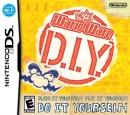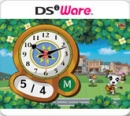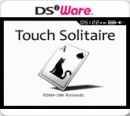DM235 said:
I think you are downplaying the effect of smartphones / tablets on gaming too much.
The smartphone market is just maturing in terms of gaming. Developers / publishers are still trying to figure out pricing models (should the games be free, but supported by ads / microtransactions, or should there be a "high" upfront cost). However, I don't think this is going to hinder things much.
|
Hold the phone. Hold the phone. Hold the phone.
Back up just one minute.
Pricing models.
Ad-based gaming SUCKS!
Let's clear that up right now.
People pay for satellite radio to get away from radio ads.
They pay for HBO to escape the TV ads.
Folks use DVRs like TiVo skip the commercials.
People use pop-up blockers to avoid intrusive internet ads.
They always hit 'Skip Ad' on those YouTube clips or tune out of the ones that can't be skipped.
Even here at VGChartz I know people are annoyed with the adware that sometimes interrupts your visit.
Gameflow is important & ads popping up in the middle of a game or drowning out the screen around a game disrupts that gameflow.
That's one inherent problem with the mobile gaming business model.
It's too desperate to turn over a dollar since entry prices are rock bottom or nonexistent.
They either do that annoying Zynga-style pestering or they add other obstrusive instruments that interrupt gameflow like ads.
It's one thing to have a simple game like Candy Crush but how is the mobile game market going to mature with stuff like that going on?
Imagine playing a tablet-based MMO adventure & all of a sudden ads are all in your face while you're playing.
You're playing the smartphone edition of Mortal Kombat & just when you're about to FINISH HIM here comes a prompt saying Finishing Moves unlockable for $2.
Yeah microtransactions suck too.
I almost didn't buy Mega Man 9 because of that mess. And I was anticipating that game!
Not too long ago you used to unlock secrets in a game by skill. Now you just pay for it.
I have to pay to play as Proto Man (Blues)??? What happened to finding the secret area, doing the secret action, & having Proto Man as my reward?
I already bought the game. So why am I still paying to play?
Remember the cheats from N64's GoldenEye 007 that you had to unlock through skill alone? No cheat codes even!
I earned each & every one of those cheats the hard way & I do mean THE HARD WAY.
Imagine me having to pay to unlock those cheats. Is that the same satisfaction?
I don't like it when console gamemakers do microtransactions either.
There's a difference between DLC that is bonus to the FULLY FINISHED game & gives you enough content for the purchase like maps & other afterthought items...
...and DLC that's asks you to pay to unlock what's already in the game.
The Famicom Disk System's Super Mario Bros. 2 (which is more like Super Mario Bros. 0.2) AKA The Lost Levels was basically a standalone expansion pack.
The original Super Mario Bros. was complete & finished & then they added these new additions to the gameplay as a bonus.
Same with Street Fighter II & Street Fighter II Turbo.
But what if I had to pay to play as Luigi? What if I had to pay to wear one of the Street Fighter's alternate costume colors?
I don't want to be nickel & dimed like that.
There's never gonna be a high upfront cost option because they have trained the public to expect these things to come out for free or very small amounts.
Impulse buys.
They killed the value proposition for their games & in the long run that will turn them to gamemaking slaves.
Might as well turn the whole thing back into a hobby instead of trying to make a living at this thing.
You see maturity. I see a crash coming that will render the new PC market (tablets & mini-tablets AKA smartphones) to the same fate as the old PC market (desktops & laptops).
It'll be a great showcase for upcoming talent but after awhile nobody's gonna be making much money purely in that space.
Expect BIG hinders in the near future.
|
Developers have already found innovative ways to add controls, either by using the gyros / accelerometers, touch screen gestures, or virtual D-pads and buttons.
The hardware improvements happen every year, and it won't be long before they rival the last generation of consoles.
Smartphones and tablets also have many of the easy-to-learn, easy-to-play casual games that I think compete with the Wii audience.
What I think will make things even worse is when parents upgrade their tablets, they can just give their old tablets to their kids. This is what I am planning to do for my daughter. There will be no need to buy her a console when the games on the tablet are good enough. Heck, smartphones and tablets may be the reason the 3DS is also down year-over-year.
|
Wait when have you heard the 3DS is down year-over-year?
From everything I heard it's WAY up year-over-year.
Nintendo 3DS tops systems as June game retail sales drop 15% in US
Key excerpts:
"A Nintendo spokesperson told GamesIndustry International that another 225,000 3DS units were sold during the month, making the 3DS the top selling game system for the period, as its sales jumped 40 percent year-over-year."
"Update: In a separate note to media, Nintendo revealed further data. 3DS software sales were up 105 percent over last year, and through June, nearly 3.6 million combined physical and digital units of first-party Nintendo 3DS software have been sold, representing an increase of more than 85 percent over the same time frame last year."
Nintendo: 3DS software sales up 52% year-on-year in US
The 3DS and Its Strong Lineup Push Nintendo to a Profit
Key excerpt:
"Nintendo had seen a loss of about $176 million in the same quarter last year; this year it showed an $88 million profit for the first quarter. After two consecutive years of losses, company president Satoru Iwata set a goal of a ¥100 billion ($1.1 billion) profit by the end of March 2014."
Nintendo 3DS sales are strong, but the Wii U is still flagging
Excerpt:
"Nintendo made a good start to the 2013 fiscal year, recording a swing to profits for the first quarter thanks to strong Nintendo 3DS software sales worldwide."
3DS UK Hardware Sales See 49% Boost
Japan: 3DS and PS3 See Sales Increase , Vita and Wii U Decline
If tablets & smartphones are hurting the 3DS, I don't think the 3DS even feels it.
As for the control aspect...
Virtual buttons are just not quite right. I gotta have a solid piece of plastic to press on for the proper feedback.
For touch functions through stylus I could dig virtual controls (that's what we had in Zelda: Phantom Hourglass & Zelda: Spirit Tracks) but trying to press an EXACT Up, Down, Left, Right & inbetween on a virtual D-pad???
Doing a Hadōken on a virtual pad is like wearing knee length black socks with shorts in the summer. It's just not done.
Nintendo has already pioneered gyro/accelero controls on their consoles but yeah games like say Professor Layton can be done on phones.
Yet somehow I notice that the Professor Layton series still puts its focus mostly on the dedicated handheld over the phone (even though they have made some mobile games from the series).
If the mobile market was so unbelievably lucrative, why haven't they left Nintendo's handhelds yet?
The Wikipedia biography of its developer Level-5 may shed some light on the situation.
Since its inception, Level-5 has enjoyed a very close relationship with Sony Computer Entertainment, with many of its titles funded by and produced in conjunction with the publisher. Since the release of Professor Layton and the Curious Village for the Nintendo DS in early 2007, however, the company has begun diversifying its product portfolio and focusing more on self-funding and self-publishing its titles in Japan with Nintendo's overseas subsidiaries distributing Level-5's games on the Nintendo DS. As of 2010, Level-5 is one of the ten largest video game companies in Japan, where they hold a 2.9% market share.[1]
Level-5 was established in October 1998 by Akihiro Hino and his development team.[2] They had left Riverhillsoft following the release of the PlayStation, so that they could focus on creating 3D software. Since Hino did not originally believe that his team could become an independent developer, he formed a connection with Sony Computer Entertainment, who would allow him to develop for their upcoming PlayStation 2 under the condition that he set up his own company.[2] The name, "Level-5", was a reference to Japanese school report cards, where "Level-5" is the highest possible mark. Soon after being created, the company had eleven employees.[2]
In just four years, Level-5 went from small startup studio to one of the premier RPG developers in Japan, and have since enjoyed immense critical and commercial success. In early 2007, the company released its first fully self-funded and self-published title in Japan, Professor Layton and the Curious Village, which has since enjoyed incredible commercial success, shipping more than 840,000 copies to retail, and has officially transitioned Level-5 into both a developer and publisher of interactive video game entertainment in Japan.
Wikipedia says that as of December 2012 Level-5 has 280 employees. From 11 to 280. One of the ten largest videogame companies in Japan after starting so small & a LOT of it has to do with the HANDHELD CONSOLE success of the Professor Layton series.
They worked with Nintendo & became greater. They work with mobile, sure, but they still stick with Nintendo's handhelds because it brings serious money to the table.
Just wait until the Professor Layton/Phoenix Wright crossover hits the shelves!
As for the hand-me-down situation you mentioned, yeah I could see that happening.
At the same time do I REALLY want to trust my 7 year old with a $700 iPad?
Peanut butter randomly smeared on the screen. Cracks all over the screen from being dropped over & over again—accidentally or intentionally.
Dirt in the crevices after being left outside on the ground. Waterlogged with rain after being forgotten outside before the storm came in.
Better to stick with a company with a history of making toys for kids. A company which has durability ratings right up there with Tonka.
They better be lucky Nintendo doesn't make phones. All that cracked screen/rubber sleeve mess will be a thing of the past.
If their Game Boy can survive the Gulf War it can survive ANYTHING.

|
I know there is content on the Wii U that you cannot get on smartphones and tablets, but again I feel that the smartphone and tablet content is good enough to steal marketshare away.
As for the "second screen" aspect, I think this is a great idea. Heck, even Sony (with the PS Vita) and Microsoft (with Smart Glass) are betting that this will be something that gamers want. Personally I am excited about it. I'll be happy enough when I can continue my gaming when my wife wants to take over the TV. However, Nintendo hasn't marketed this feature well at all. I have only ever seen it used as a glorified controller for the Wii with a bonus screen in the middle. How can Nintendo expect to sell more when consumers aren't aware of its main features?
|
Nintendo will ensure that the 3DS & Wii U have content you CAN'T quite get on the tablets/mini-tablets just like they did to the home computers of 25-30 years ago.
That's what keeps console gaming alive. That differentiation.
Apple figured out Nintendo's plan & incorporated it with their sneak-in-the-back-door entry to videogame business.
The key difference is that by design ALL developers on Apple/Google's systems are 3rd party developers.
They can't shape the platform. They can only work within it.
Nintendo is a 1st party developer. They CAN shape the platform & create that necessary differentiation that keeps their games viable against all competition.
They're the last one in this business who understands that controlling the platform controls the market.
The last & only true 1st party developer in the business. Gamemaker AND platform provider.
Sony & Microsoft are not gamemakers & they don't necessarily shape their consoles for gaming purposes.
And neither are Apple & Google with their Android. They're not gamemakers either.
Ultimately a phone is designed with PHONE purposes in mind. Not game purposes.
Games are at the end of the day a side feature for phones.
People buy phones with their focus on contract or no contract, signal coverage, talk & text plans, service provider, phone style & size.
They don't buy phones anticipating how they're gonna play their games on them.
They might wanna play games on the phone once they made their purchases but they're not buying phones specifically for the games.
I'm telling you there are limits to the smartphone games market.
Tablets on the other hand are not tied to phone calls so they may have a better chance.
But because of their static overall design, the rounded rectangle, they're not gonna be able to go the long term in game input development.
If you say people can get a bluetooth controller & play games on the tablet, then what that does is essentially turn the tablet into a TV.
It's only gonna be a viewing device & not the ideal one at that. People get larger screens to look on than the notebook paper-sized design tablets come in.
Mark my words. The tablet/smartphone games market will be looking towards Nintendo's 3DS & Wii U for ideas on game design & implementation.
Yes, the console once again. Nintendo's still the leader even here.
While Nintendo could do a better job in promoting their second screen functions, I think most of all they need to highlight the TOTAL ABSOLUTE Backwards Compatibility on the Wii U.
Not just games but all accessories as well. If you already have Wii accessories, you don't have to buy a whole new set of controllers & other things.
That is unprecedented!
And they can do home console second screen cheaper than anybody else. The console & UPad now cost only $300.
Sony's second screen setup has you buy a PS4 for $400 & a Vita for now $200. A total of $600.
Even if Sony used it for the PS3 instead you're STILL looking at a minimum of $400 with now $200 PS3 & $200 Vita.
Microsoft's SmartGlass setup needs $500 for the XBox One not counting phone costs if you have to upgrade your phone to be able to access the service.
Most tablets run above the $300 limit especially the ones with a sizable enough screen.
Even IF tablet prices become regularly cheap enough to challenge Wii U's setup, the UPad has a little more going on with it than the iPad does.
The Pad from Mario's Galaxy has a little more going on with it than the one from the Samsung Galaxy. This is where the buttons come into play.
Mixing button play, touchscreen play, AND motion play gives more possibilities for gaming than just touch & motion.
The Magnavox Odyssey 2 of 1978 ran into problems with its membrane keyboard. All touch with no buttons to press.
I'll just let Wikipedia explain the problems with no buttons.
Excerpts from Wikipedia's membrane keyboard page:
A membrane keyboard is a computer keyboard whose "keys" are not separate, moving parts, as with the majority of other keyboards, but rather are pressure pads that have only outlines and symbols printed on a flat, flexible surface. Very little, if any, tactile feedback is felt when using such a keyboard, and error-free blind typing is difficult.
Membrane keyboards, which work by electrical contact between the keyboard surface and the underlying circuits when keytop areas are pressed, were used with some early 1980s home computers, and have been much used in consumer electronics devices. The keyboards are very inexpensive to mass-produce, and are more resistant against dirt and liquids than most other keyboards, but due to the low or non-existent amount of tactile feedback provided, most people have difficulty typing with them, especially when large numbers of characters need to be typed. Chiclet keyboards were a slight improvement, at least allowing individual keys to be felt to some extent.
See? For anything that requires heavy intensive use of finger press, people like TACTILE FEEDBACK. That's why computer keyboards still have springy clicky buttons on them.
Touchscreen style works with stylus because it's essentially the same as writing on paper. Something we have been doing for centuries & millenia.
Rubbing finger on screen touchscreen style works for games that require light use of it.
But for anything to become more robust for finger use you gotta have some kind of support or cushion.
Fingers can rest on a stylus & be cradled by a button.
The late Steve Jobs hated styluses & was more focused on all touch with his Apple devices.
You notice Nintendo didn't bend to Jobs' mentality & kept a stylus with their Wii U.
They didn't even opt for multitouch because they understood that in gaming you need PRECISION.
That's why you still see styluses sold in stores because many people wear out doing all touch all the time with no support for their fingers.
Thinking on these things is why I know Nintendo will ultimately be successful with Wii U DESPITE the competition from the console world & the NEW PC world of tablets.
They know how to shape their hardware to meet the needs of their software.
And they do it with a GAMING focus in mind.
Tech as always is just the means to the end.
The end is FUN.
John Lucas




































































